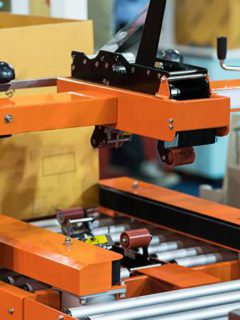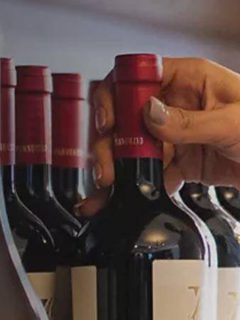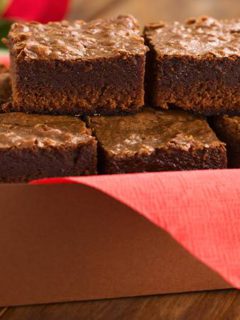Today 22nd April is Earth Day, Gaylord Nelson created this day to raise awareness about biodiversity conservation, overpopulation, pollution production and other environmental problems that the Earth is facing. At Rajapack we have a strong commitment to protecting the environment, so today we will answer your frequently asked questions about the impact of packaging on the environment. We will discuss topics such as recycling and environmentally friendly packaging
- what is recycling?
- how do you recycle?
- Differences between green, eco-responsible, recycled, biodegradable, compostable and compostable
- why use products made from recycled materials?
- does paper consumption destroy forests?
- Recycling symbols
but first of all, we have to remember that to protect nature in the best possible way we have to follow the 3 R’s rule, in this order
- Reduce: Use as little packaging as possible to ensure that the environmental impact is minimised. Avoiding plastic in packaging and replacing it with environmentally friendly products is an effective way, for example.
- Reuse: Any product that has inevitably been purchased can be given more than one life, e.g. consider customer returns, use return boxes so you don’t have to use two pieces of packaging if customers want to return your product.
- Recycle: Once you no longer need the packaging, recycle it, but do it properly.
► what is recycling?
recycling is a procedure for the treatment of industrial and household waste that allows the materials of which it is composed to be reintroduced into the product cycle.It has 2 main ecological consequences
- Reducing the volume of waste, and therefore the pollution it would cause;
- Preservation of natural resources, as the recycled material is reused.
► how is it recycled?
el reciclaje de papel y el cartón
El reciclaje del papel y cartón es, en general, más ventajoso que la incineración. Una fibra de papel puede ser reciclada hasta 10 veces. Luego, las fibras se vuelven demasiado frágiles.
El reciclaje de la madera
La madera es reciclable por excelencia. Por ejemplo, los palets de madera pueden ser reparados o convertidos en virutas para luego fabricar paneles, serrín para jardinería, o bien ser utilizadas como combustible.
El reciclaje del plástico
Los plásticos reciclables son el polipropileno (PP), el poliéster (PET), el polietileno de alta densidad (HDPE). Cada tonelada de plástico reciclado ahorra 700 a 800kg de petróleo crudo.
El reciclaje del acero
Este material se encuentra en la fabricación de objetos que utilizamos a diario (embalaje, automoción, electrodomésticos, muebles…).
Por una tonelada reciclada de acero, se ahorra una tonelada de mineral de hierro. El aluminio se recicla indefinidamente y con facilidad: el reciclaje del aluminio permite ahorra
► Differences between green, eco-responsible, recycled, biodegradable and compostable
¿Que es un producto ecológico o eco-responsable?
La ecología es una rama de la biología que estudia la relación entre seres vivos y su ambiente, por lo tanto, un producto ecológico o eco-responsable es el que su producción, obtención y uso no afecta al medio ambiente, o sea, que no contamina.
Aplicado al embalaje, todo producto estándar tiene una versión ecológica, aquí un ejemplo: Evita comprar muchos tipos de cajas y protección, puedes utilizar una caja Variabox que se adapta al producto que tiene en el interior. Evita los plásticos como la protección de burbujas o cintas adhesivas con su versión hecha de papel.

Dentro de los productos ecológicos tenemos: Los productos reciclados, reciclables, biodegradables y compostables, tienes sus definiciones a continuación.
¿Qué es un producto reciclado o reciclable?
No es lo mismo que un producto sea reciclado que sea reciclable, ambos son considerados productos ecológicos porque ayudan a preservar el medio ambient
| A recycled product is a product that comes from recycling. | A recyclable product is a product that can be recycled. |
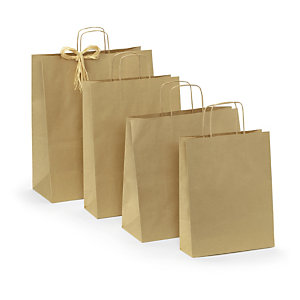 |
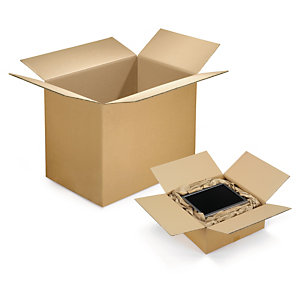 |
what is a biodegradable product?
These are products that decompose by the natural biological process (thanks to the action of microorganisms).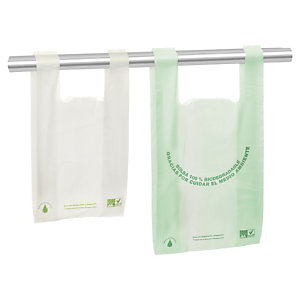 An example of a biodegradable product is biodegradable bags, they are made from cereal starch and are as strong as a standard bag! They offer flexibility, impermeability and resistance due to their molecular structure.
An example of a biodegradable product is biodegradable bags, they are made from cereal starch and are as strong as a standard bag! They offer flexibility, impermeability and resistance due to their molecular structure.
What is a compostable product?
Composting avoids costly and polluting incinerations, and promotes the recycling of our waste. A compostable product is the best for the environment because when it decomposes it turns into organic fertiliser.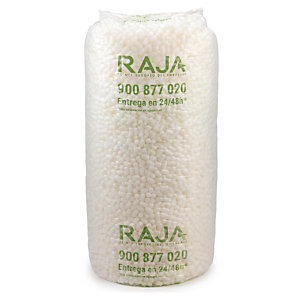 An example of a compostable product is Renature packaging chips. Made from corn starch.
An example of a compostable product is Renature packaging chips. Made from corn starch.
► why use eco-friendly packaging?
because they contribute to waste reduction, give the material a second life and therefore limit the use of virgin raw materials. Also, do you know about the Women and the Environment action programme? Every time you buy one of the selected eco-friendly packaging products, Rajapack will donate 1€ per package to the RAJA-Danièle Marcovici Foundation, where they support 5 projects related to women and the environment
► does paper consumption destroy forests?
nO! The paper industry uses only by-products (based on wood chips and wood waste) or uses trees from sustainably managed forests. Contrary to popular belief, the area covered by forests in Europe has increased by 25% in recent years. 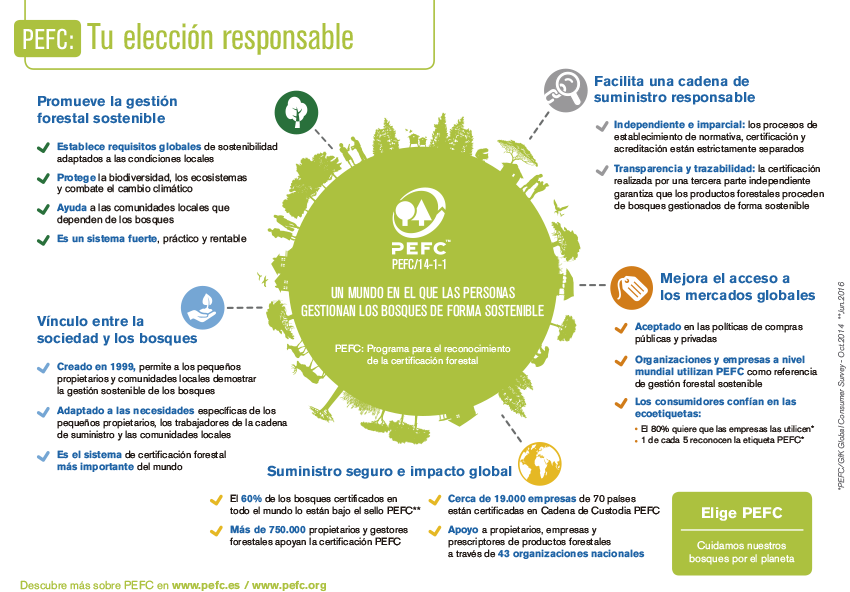 Source: www.pefc.org[/caption]
Source: www.pefc.org[/caption]
► Recycling symbols
it is possible to detect eco-friendly packaging through its labelling. In this way, through its symbols, we can detect whether a product is recyclable, what recycled material content it contains or the origin of its raw materials. To find out more about what signs we should detect to recognise eco-friendly packaging, don’t miss this summary
|
Symbol and labels |
Name | Description |
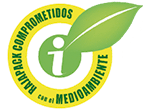 |
Rajapack committed to the environment |
Thanks to this logo, you can easily find all the environmentally friendly products on our website and in our catalogues |
 |
Products that reduce waste production, save raw materials or energy |
Products partially made from recycled materials. This symbol indicates that the product contains recycled materials according to the number indicated inside the loop. |
 |
Recyclable products | products made from recyclable materials. |
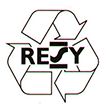 |
RESY certified products | Indicates that the product is environmentally compatible and suitable for recycling. |
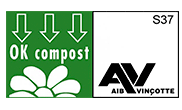 |
Ecolabel certified products |
100% biodegradable products that decompose completely without harmful effects. |
 |
Products from renewable resources |
Products from renewable resources made from wood from sustainably managed forests. |
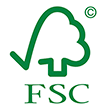 |
Product from renewable resources |
products from renewable resources made from wood from sustainably managed forests. |
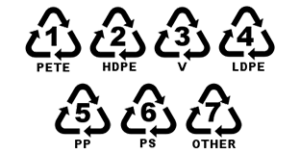 |
Pictograms helping to identify the type of material |
Pictograms designed to facilitate the sorting and recycling of plastic PET (PETE): Polyethylene terephthalate PE-HD (HDPE): High density polyethylene: translucent appearance PVC (V): Polyvinyl chloride: crystalline appearance PE-LD (LDPE): Low density polyethylene: transparent appearance PP : Polypropylene: partially crystalline appearance PS : Polystyrene glass: transparent appearance |
 |
Symbol that identifies electrical and electronic products that must be separated for proper recycling. |
This waste should not be disposed of in the trash, but must be separated for proper recycling. |
remember that if you have any further questions, we have a specialised team to advise you. Call us on 902 20 30 06, or visit www.rajapack.es











